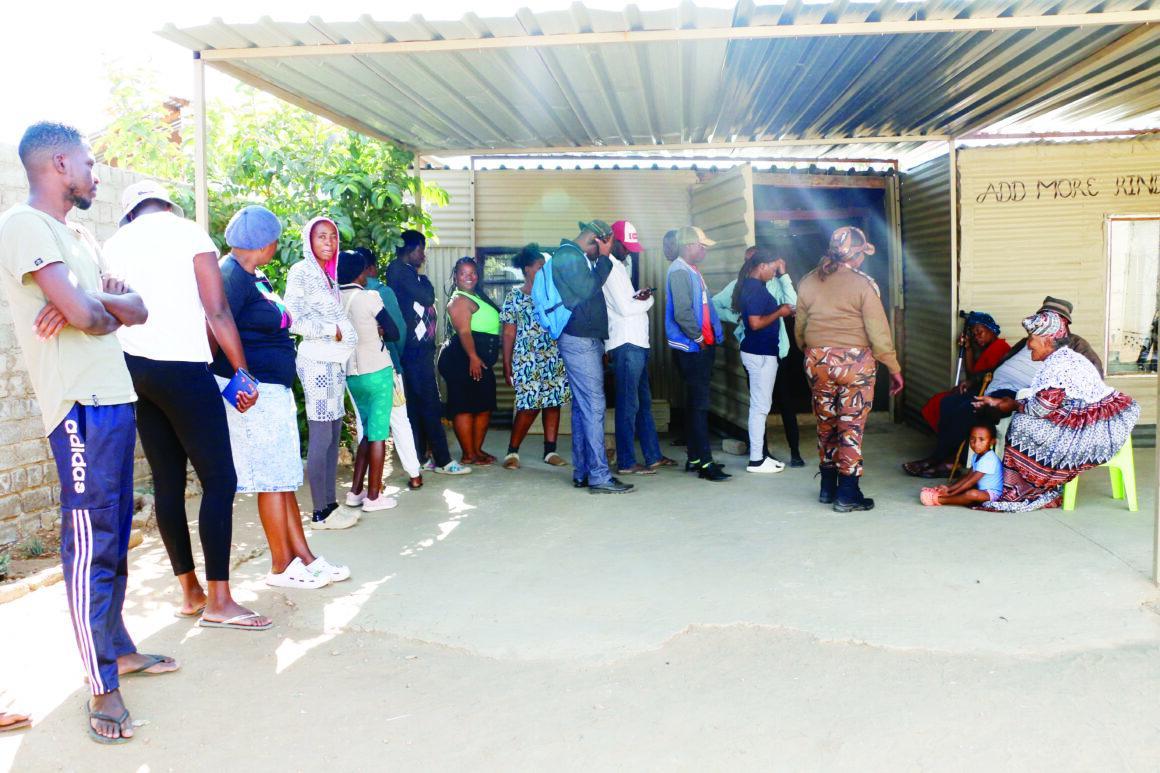Africa-Press – Namibia. During its first week of the Supplementary Registration of Voters (SRV), the Electoral Commission of Namibia (ECN) has registered 19 359 eligible voters in all 121 constituencies and 59 local authorities.
The SRV ended on Tuesday.
A total of 12 270 voters were moved from one constituency to another in the first
week. Moreover, 4 181 registered voters applied for duplicate voter registration cards.
The commission is yet to reveal the total registered voters during the entire 2025 SRV period. In 2020, ECN registered approximately 96 247 eligible Namibians countrywide.
Of this number, 34 270 were new voters registering for the first time. Others were persons registering due to a change of address and replacement of lost or damaged voter cards.ECN had conducted the elections under the theme ‘Ensuring inclusive and credible elections amidst Covid-19’.IPPR stated that, in 2015, over a million people registered for the regional council elections.
This represented a turnout of 36.5%. A total of 384 258 votes were cast.
Significantly, 412 720 voters registered for the local authority elections in 52 contesting local authorities.
Total votes cast accumulated to 164 201.
The local authority with the highest voter turnout was Okongo in Ohangwena with 78.4%, while Windhoek recorded the lowest turnout at 32.7%
Meanwhile, during the general registration for the Presidential and National Assembly elections, 152 472 eligible voters were registered.
The figure was an average of 38 002 registered voters per day during the week of 29 July to 1 August 2024, which was the highest turnout recorded, paralleling the overall turnout recorded weekly since the entire registration period.
Notably, the overall cumulative number of eligible Namibians registered as voters – both within the country and at Namibian diplomatic missions abroad – rose to 1 467 604, representing a turnout of 91% of eligible voters.
From 3 June to 20 July 2024, a cumulative total of 1.1 million eligible Namibians had already registered as voters inside the country and at all Namibian diplomatic missions abroad, representing 71% of the eligible voters.
Analysis
Researcher at the Institute for Public Policy Research Frederico Links said citizens
exhibit more trust in local authorities compared to regional and national governments, even though the overall level of trust remains low.
He said citizens appear to, however, not view voting during Regional Council and Local Authority elections as important as the Presidential and National Assembly elections.
This is despite the current elections being equally imperative because citizens have most interactions with local authorities.
This is where service delivery directly occurs.
Links said the low levels of trust in regional and local authorities by citizens remain contributing factors to the low turnout of voters. He said this because the local authority is unresponsive to issues concerning the citizens. At the local authority level, decisions are made that citizens do not expect or agree with, which are not communicated properly to them.
“There’s little to no transparency with what’s happening at local authority levels. At the regional levels, most people don’t know what the regional government is there for. They don’t understand or see its impact on their lives,” Links said.
Furthermore, the researcher highlighted that aside from the service delivery issues and the perceived disconnection from their lives, many people perceive that there is a lot of corruption throughout government, which adds to these low levels of trust.
Namibia has over 25 political parties. Links said there is a growing distrust of political parties. “People feel that parties aren’t delivering,” he noted.
Regional councils
Over the years, regional councils have complained about a lack of funds hampering development. Some have argued that many councillors have good ideas but lack the funds to put their ideas into action.
Meanwhile, the regional and constituency development fund aims to provide financial assistance for development projects in regions and local authority areas.
The bill, which is currently tabled in Parliament, aims to provide for an annual appropriation to the fund.
It will establish a board to manage the affairs of the Fund and provide for its powers and functions.
In addition, it will make provision for the allocation of funds to regional councils and local authorities to fund development projects approved by the board, as well as to provide for incidental matters.
Speaking to New Era recently, Ndumba Kamwanya said a budget is needed from the national government.
What matters is how councillors use that budget, even if it is very small.
“What are we achieving with the little? Can we do more with less? That is the issue that we have,” he questioned.
“It is about leadership – and for me, it is about being creative,” he added.
For More News And Analysis About Namibia Follow Africa-Press






